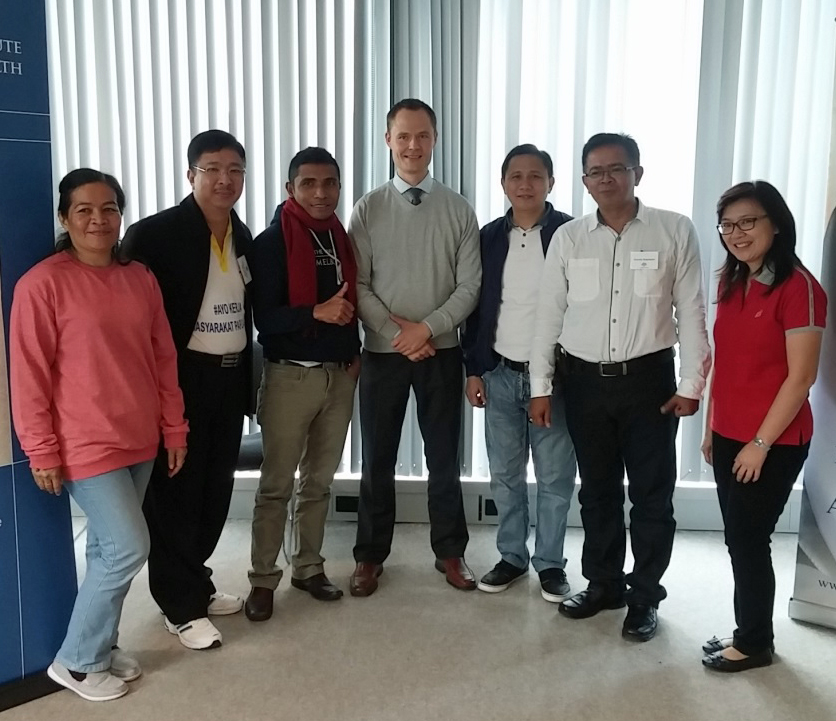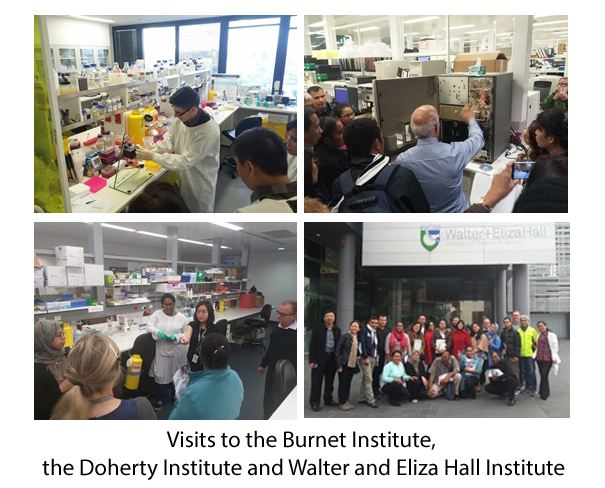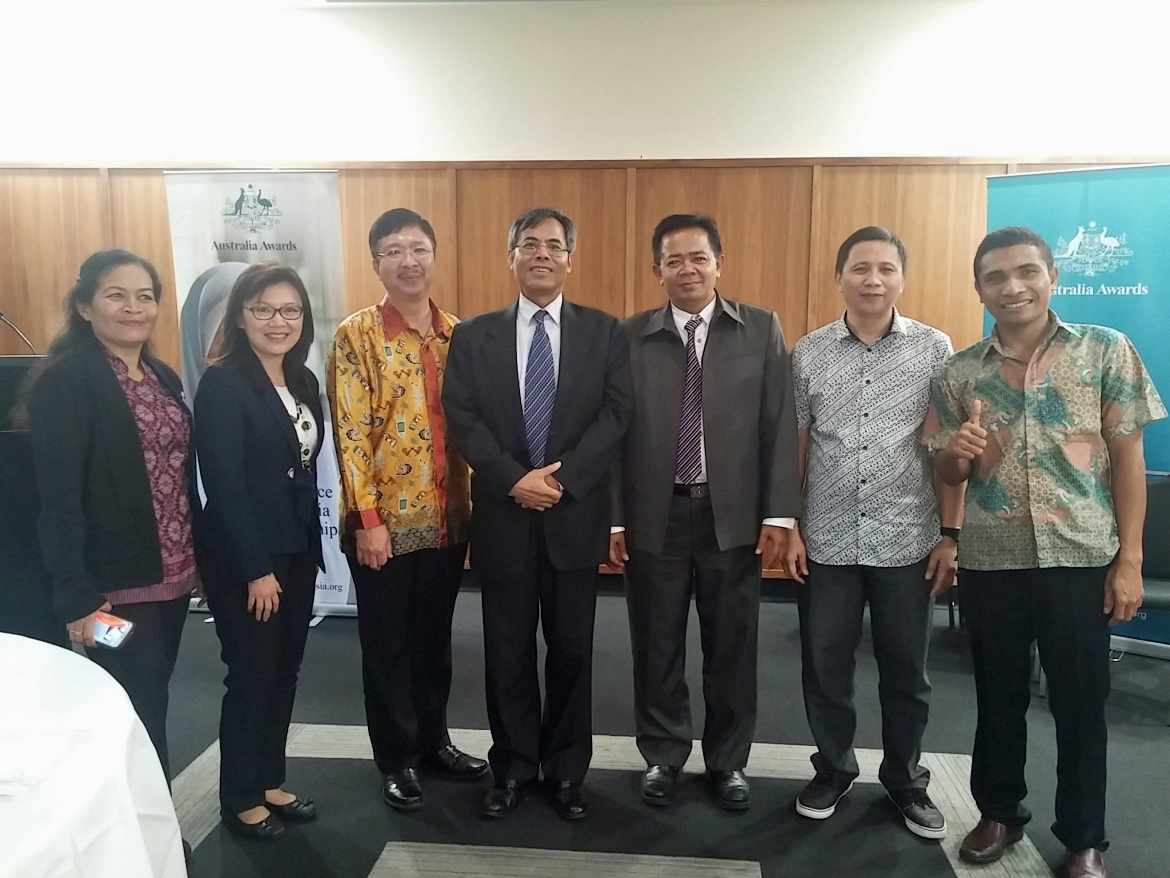Written by Victor Eka Nugrahaputra
Edited and translated by Australia Awards in Indonesia
Understanding malaria is not a simple matter. Even having served as a doctor—be it as a clinician or programmer—in the highly malaria-endemic area of West Papua Province for close to 20 years, does not mean that one has fully grasped the characteristics of malaria. Even if one has experienced firsthand numerous times what it’s like to be infected by tertiana and tropical malaria, it does not mean one knew everything on how to control malaria. And so, learning from the experts of each respective field becomes a humble outlook that everyone must have, even the experts, as they are not necessarily expert in every field.
 That is what we learned while participating in the Australia Awards Malaria Prevention and Treatment for Infants, Children and Pregnant Women in Eastern Indonesia Short Term Award in Melbourne, 9-27 May 2016.
That is what we learned while participating in the Australia Awards Malaria Prevention and Treatment for Infants, Children and Pregnant Women in Eastern Indonesia Short Term Award in Melbourne, 9-27 May 2016.
Lisa Davidson of the Burnet Institute, Melbourne, shared her experience on Home Malaria Management implemented in East New Britain, Papua New Guinea. In the midst of the malaria crisis, limited infrastructure and health resources, the participation of the community became key. There are five key factors that need to be taken into consideration so that a program involving the community could be carried out effectively:
1. Community engagement.
2. Integration into existing programs.
3. Sustainable training and support.
4. Quality assurance.
5. Local ownership.
Aside from stating that “indigenous knowledge sits in place”, Prof Kerry Arabena from the Indigenous Health Equity Unit, Melbourne School of Population and Global Health (MSPGH), also elaborated on how collective impact can be realised when the indigenous community are invited to collaborate in solving issues, including malaria management. When working together with a certain community, the program, project, or horizontal intervention implementers were reminded of the key points encapsulated within the Taranaki Rules—amongst them being:
1. I am a guest.
2. One day, I will be leaving this community.
3. Ninety percent of knowledge comes from the community, while I only possess 10%.
4. Therefore, I should speak only 10% of the time, while listening to the community the rest of the time.
5. Even so, four out of five of my dialogue should take the form of questions.
6. Do not forget to listen to the voice or opinion of marginalised groups.
7. Enquireas could be made using the following approach: "Would you be willing to share your story/opinion/experience with me/us?"
8. A program, project or horizontal intervention shouldn't be too brief. Five years is ideal.
It isn’t necessary to teach the understanding of principles using a one-directional, rigid and serious method. On the contrary, key issues can be imparted through a participatory, interesting and fun method. Lisa Davidson used candies to illustrate the difference between qualitative and quantitative research.Neither types of research are better than the other. Both are needed to fulfill the data and information needs for malaria. There needs to be a push for more malaria research in Indonesia. The Menzies School of Health Research, Darwin, has conducted many research in Papua, in particular the Mimika Regency. Prof. Yaowalark Sukthana, MD, the Dean of the Faculty of Tropical Medicine, Mahidol University, Thailand, also utilised a unique approach to determine whether the participants had understood the materials taught and whether they were smarter than plasmodium. Through various comprehensive study cases, the participants competed in groups, answering various questions. At the Arole Conference Room, the Nossal Institute for Global Health, Timothy Moore lead the discussion on the malaria control towards malaria eradication efforts in four regions: Malaysia, the Phillipines, Sri Lanka and Reunion Island. Indonesia needs to learn from the successes and failures of each of these regions. It was an interesting discussion as participants were able to learn independently and receive input from other participants.
Malaria knowledge transfer is an art form. It is everyone's right to have access to up-to-date knowledge on malaria, in particular in areas where malaria endemicity is still high. The knowledge needs to be disseminated using the right method. The knowledge is not only needed by the current generation fighting towards malaria eradication, but also for the second and third upcoming generations who might no longer face malaria issues. A country became an example of what could happen when it didn’t retain the knowledge on malaria for 20-30 years because the country had been declared free of malaria. When cases of malaria began to rise in the country, it went into shock, with the malaria experts no longer being available.
Meanwhile, Australia and Thailand are examples of the other end of the spectrum. Even though the number of malaria cases in Australia and Thailand are now extremely low, the passion to find new information on malaria is tremendous. Our visits to various research institutions in Melbourne saw this. We are determined to share what we've learned during this Short Term Award with the various stakeholders in our communities. May we be able to contribute more towards a malaria-free Papua and West Papua in 2030.



 Transferring Knowledge on Malaria
Transferring Knowledge on Malaria
